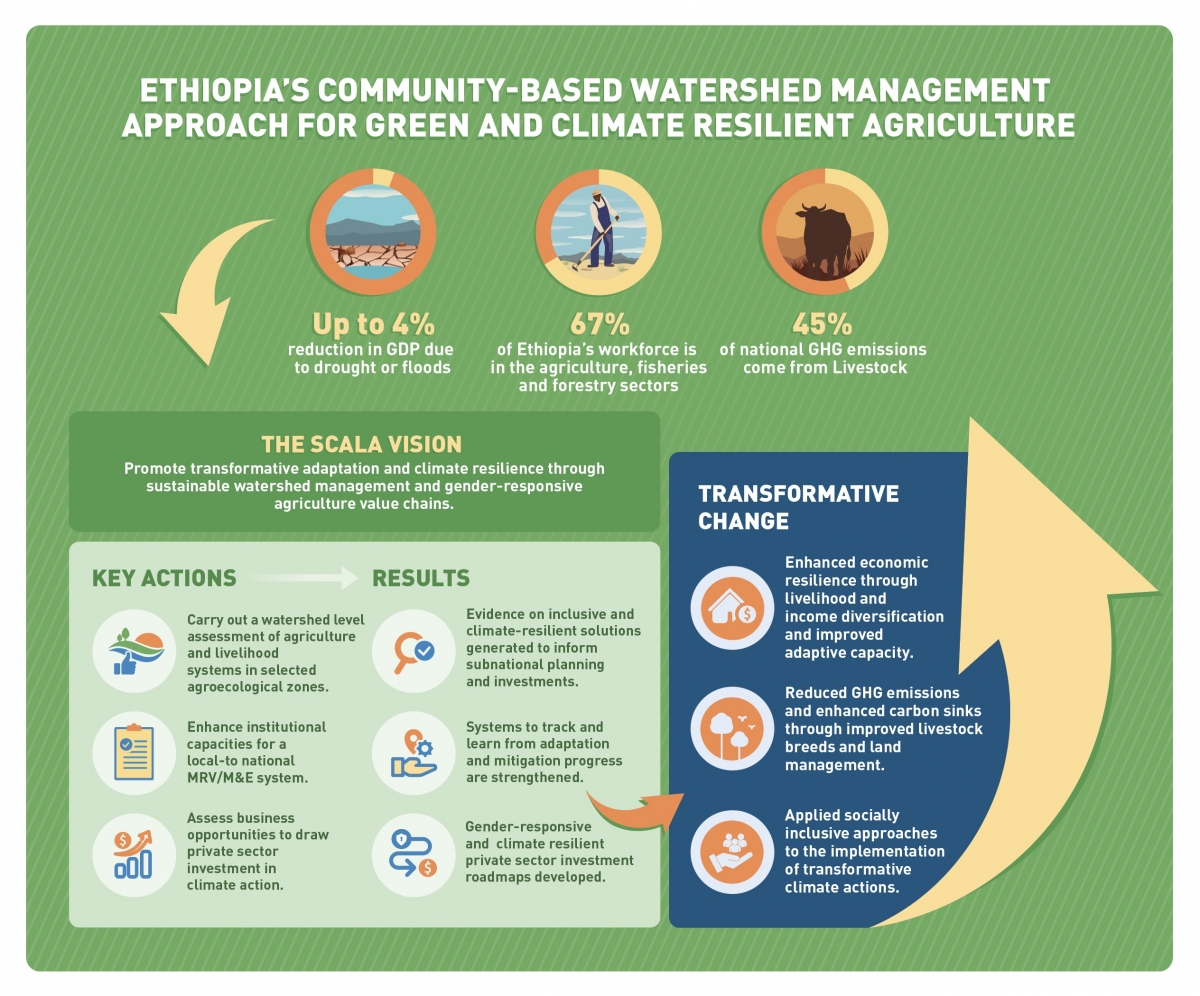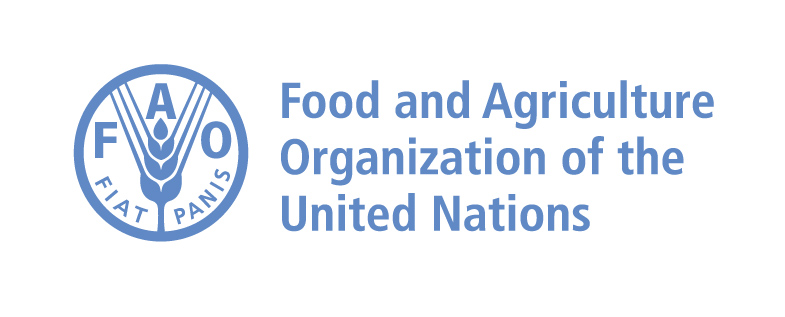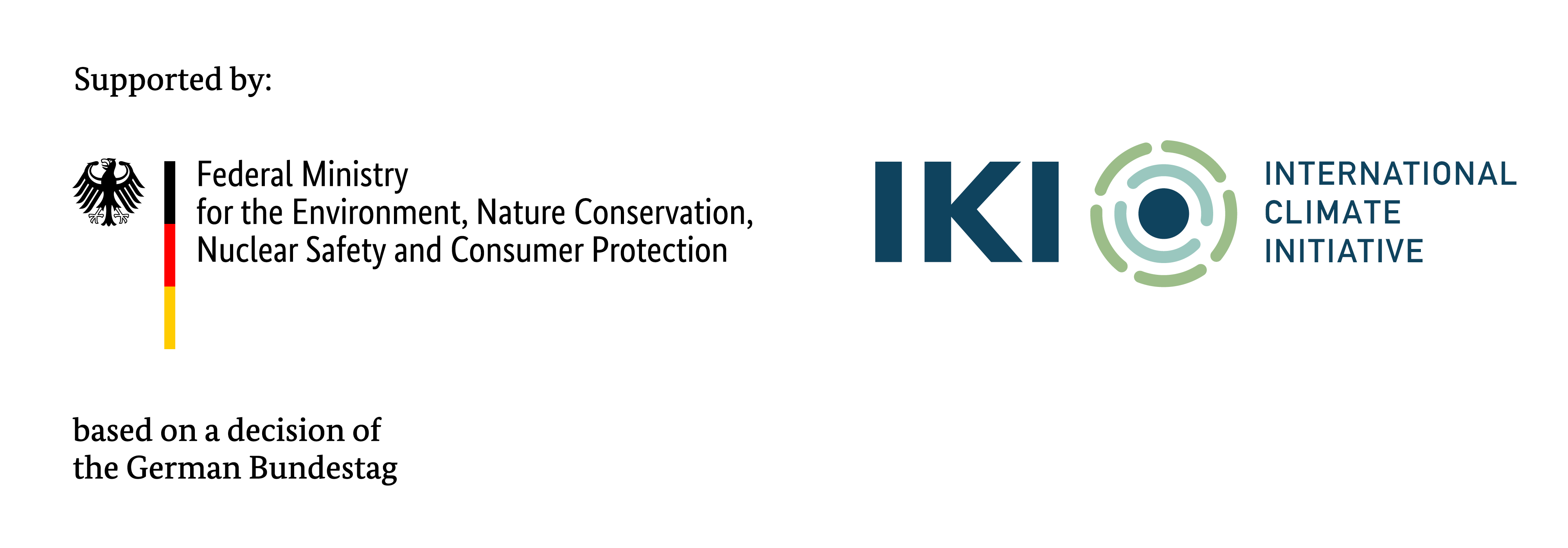SCALA Ethiopia
Project Overview
Ethiopia is a landlocked country in Northeast Africa and has a population of over 112 million people. Its agriculture sector plays a major role in the national economy, contributing to 34.5 percent of GDP in 2020. Smallholder farming accounts for approximately 95 percent of agricultural production and 85 percent of total employment. In Ethiopia, agriculture and land-use are high GHG emitting sectors with around 80 percent of domestic emissions. Ethiopia’s agriculture sector is extremely vulnerable to climate change due to its high dependence on natural resources, and relatively low adaptive capacity – especially in rural areas – to deal with frequently experienced extreme events and longer-term variability, including droughts and floods, rainfall variability and pest invasions.
Project Details
The Government of Ethiopia aims to proactively pursue further integration of climate change adaptation in its development policies and strategies, including macroeconomic and sectoral policies at regional and local levels. In support of this target, the SCALA programme will leverage participatory methods to address Ethiopia’s institutional and financial barriers to mainstream climate change at all administrative levels, to allow for a transformative shift in their agriculture and land use sectors. Building on the capacity gaps identified in scoping exercises, the programme will seek to enhance institutional capacities of the country to support the management of climate budget tagging systems, to undertake climate finance and resource mobilization, and to engage and mobilize the private sector to increase its investments in climate action. It also intends to develop stronger knowledge and information sharing platforms for bridging the gap between national, regional and woreda level governance mechanisms. Additionally, the implementation of SCALA programme will support the establishment of enabling environment and de-risking instruments to engage and incentivize private sector investments in climate actions.
The expectation of undertaking such activities is that they will help the country accelerate its NDC and NAP implementation. With the SCALA programme supporting Ethiopia over the next five years, UNDP and FAO will strive to foster a more inclusive, multi-stakeholder process that meets the needs of smallholder farmers, rural communities, women, and youth, who are the most vulnerable to climate change.



